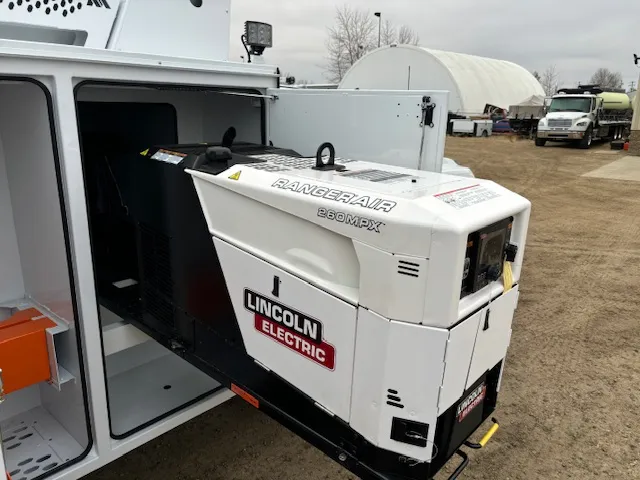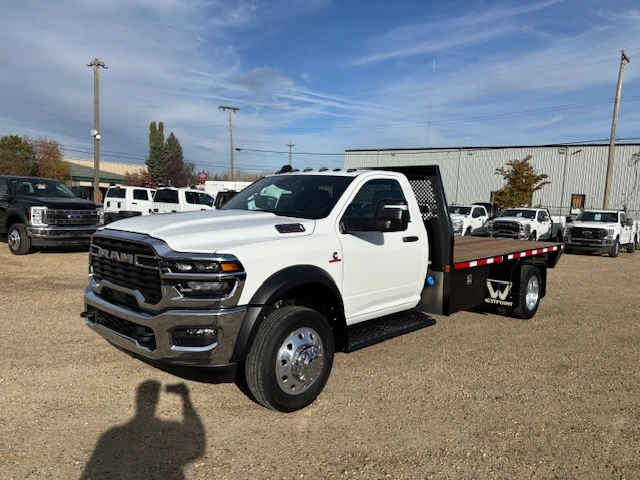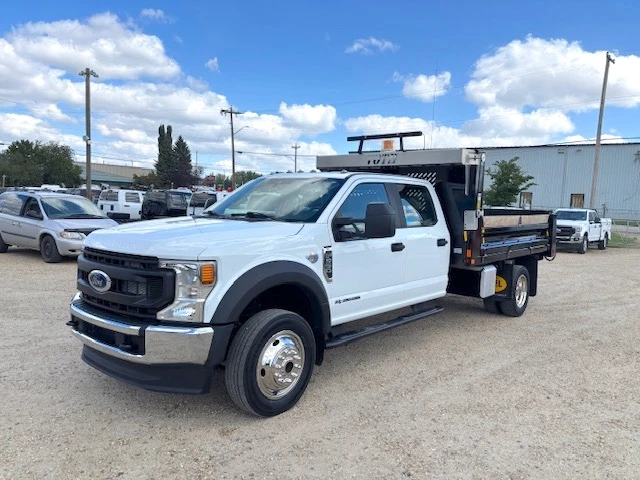Diesel has long been the go-to for medium-duty service trucks. But, with more and more manufacturers introducing gas-powered models, field workers have a wider selection than ever before to choose from. When you’re on the job, you want the right truck to get it done. So between gas and diesel service trucks, which one is right for you? The short answer—it depends.
Let’s look at gas vs. diesel service trucks and find out what they both bring to the worksite.
Advantages of Gas Service Truck
- Accelerations and Horsepower: Gas-powered vehicles generally offer more oomph off the line, with more horsepower and acceleration than their torquey diesel-powered cousins. When you need quick acceleration and passing capabilities, opt for a gas-powered service truck.
- Convenience: Gasoline is sold at nearly every fueling station, while diesel may not always be available. If you find yourself in remote areas with little access to diesel fuel, you may have more luck with a gas service truck.
- Lower Maintenance Costs: When you need repairs, autoshops tend to have parts for gas service trucks readily available. The result is quicker, easier, and more affordable maintenance and repairs.
- Lower Initial Cost: Gas engines typically have a significantly lower purchase price than diesel engines. This can translate to substantial savings upfront, especially for those purchasing fleets.
Advantages of Diesel Service Trucks
- Higher Torque and Towing Capacity: Diesel engines, that torquey cousin we mentioned, excel in heavy-duty towing and hauling. This makes them ideal for service trucks that frequently handle demanding loads.
- Better Fuel Economy (especially with heavy loads): While diesel fuel may cost more per gallon, diesel engines often offer better fuel economy, especially when towing or hauling heavy loads. This leads to long-term cost savings for high-mileage applications.
- Longer Lifespan: Diesel service trucks are typically built with heavier-duty components and simpler designs—contributing to a longer and more reliable lifespan. They can withstand higher compression ratios and more demanding work cycles.
- Exhaust Braking: To enhance their towing prowess, diesel service trucks often feature exhaust brakes, which provide additional stopping power when towing heavy loads. This reduces the wear on the truck’s regular brakes.
Things to Consider Before You Decide
Before you commit either way, there are considerations to take into account:
- Application: Consider what you’re using your service truck for, and typical conditions it’ll face. If heavy towing and hauling are a priority, opt for a diesel service truck. For lighter-duty applications, consider a gas service truck.
- Cost: Cost comes down to more than just the sticker price. Consider maintenance, fuel, and any other long-term operating costs.
- Fuel Availability: Assess the accessibility of diesel fuel in your operating area. If you tend towards remote zones, you may want to consider a gas-powered vehicle to avoid stressing about where the next pump is.
- Maintenance: Factor in the potential for higher maintenance costs with diesel engines, but remember to weigh this against the long-term durability and lifespan to determine which will be a priority for your service truck.
Ultimately, when you’re deciding between gas and diesel service trucks, the choice is up to you.
Service Trucks That Work as Hard as You Do
Whether you choose a gas or diesel service truck, the most important part is finding the one that will work for you, long-term. When you’re considering a gas or diesel service truck, let the experts at Trucks For Less in Acheson help you decide. We’ll find the right truck to suit your needs, and financing options to meet your budget.
For all your gas and diesel service truck needs, contact the experts at Trucks For Less.








